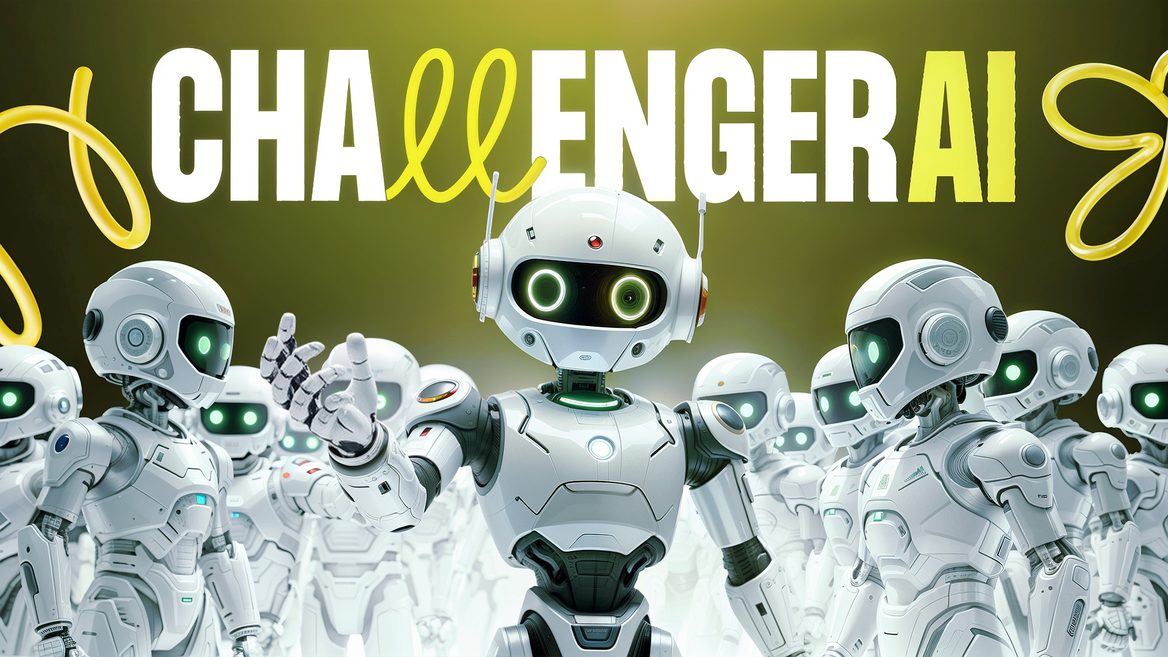Challenger AI is a very well-balanced program that allows you both to deepen theoretical knowledge and receive practical advice from startup founders and experts in various fields. Networking and new connections proved invaluable, the mentor matching was incredible, and the Pitch Day provided extremely valuable feedback. I was also fortunate to join the accelerator’s delegation to Estonia, where I found new clients and signed partnership agreements with a representative in Central Asia, Nataliya Lymonova, CEO of GIOS told dev.ua.

The mentor who worked with GIOS, Karin Küünnapas, a venture partner at Tera Ventures and Managing Director of EstBAN, noted that this was her first experience working with a Ukrainian startup. “I think the main way I was able to help GIOS was by helping them focus and set priorities, as well as understand that it’s okay not to try to do everything at once,” Karin told dev.ua.
According to the expert, going through accelerator programs is a very important step for new startups, as there are many stages that need to be completed to increase the likelihood of success at the early stage of building a business. “An accelerator can help you do this systematically. In addition, you’ll meet amazing people who are on a similar journey and create a support system for yourself. This is exactly what Challenger AI does and why it’s such a valuable program,” Karin emphasizes.
dev.ua also spoke with Olena Shershun, Program Manager at Challenger AI and Associate Partner at Civitta, the founding company of the accelerator, about the specifics of acceleration, the focus on AI, and opportunities for startups from Ukraine.
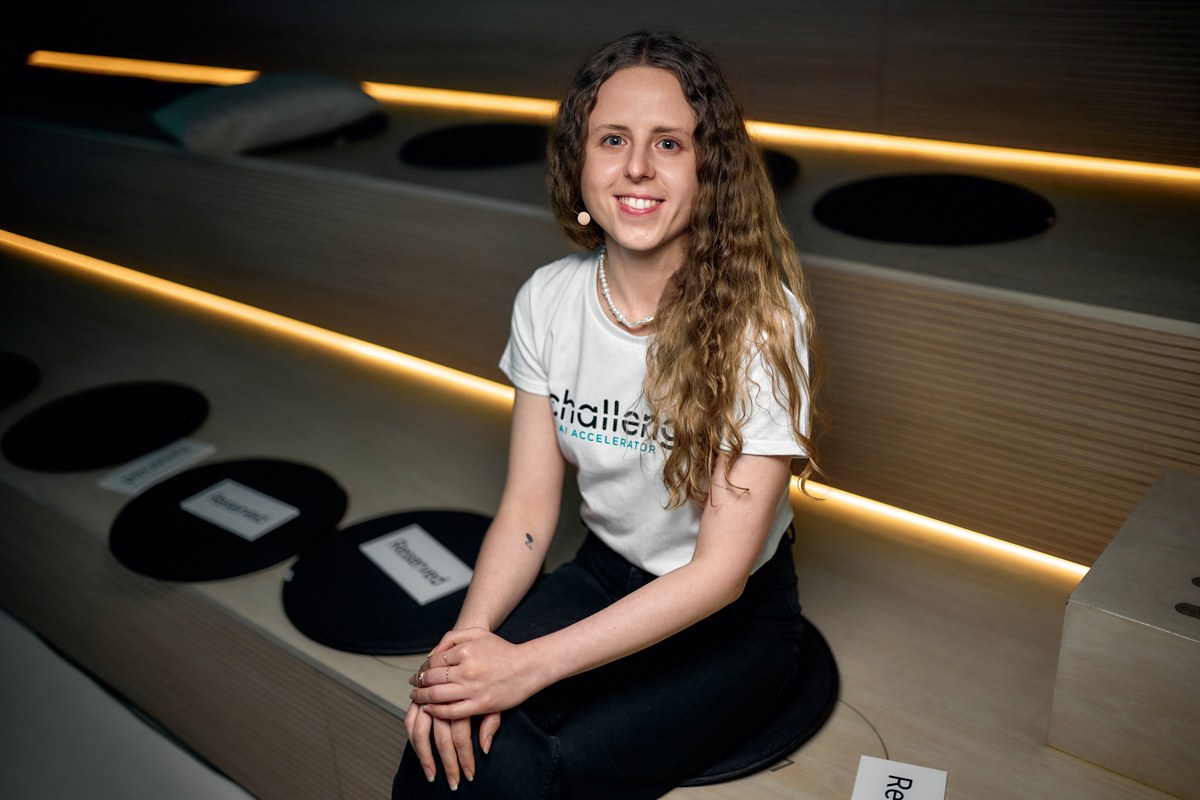
REFERENCE
Challenger Accelerator is a project by the international consulting company Civitta, which operates in over 20 countries. The Challenger team works with small, medium, and large businesses, helping to enhance their innovation capabilities through hackathons and specialized business idea launch programs.
In addition, the Challenger team actively develops the startup ecosystem. They organize acceleration programs for startups from around the world, helping them improve their products, implement technological solutions, enter new markets, and attract investments. Challenger Accelerator’s portfolio includes 50 completed acceleration programs across various sectors in Estonia, Slovakia, Lithuania, Ukraine, Armenia, and other countries. Overall, their graduates have raised more than €2 billion in investments. The Challenger AI Accelerator is a project actively implemented and managed by the Ukrainian and Estonian teams.
— How did Challenger AI come about?
The Challenger Accelerator brand was established in 2019. By that time, the Civitta team already had 10 years of experience working with startups and had implemented numerous programs across various sectors, including urban development, Health- and Deep-Tech, Green & Digital, and Diversity, as well as supporting women’s entrepreneurship. We realized it was time to channel this experience into a dedicated brand for acceleration programs.
Challenger Accelerator unites several programs, including Challenger Science for scientific solutions, Challenger EDU for ed-tech projects, the Challenger Cassini business accelerator, and the Challenger AI Accelerator, which we launched in 2021.
Challenger AI is an accelerator for AI startups or teams planning to integrate AI into their solutions. The program is funded by ESTDEV — the Estonian International Development Centre, and UMAEF (Ukraine-Moldova American Enterprise Fund). Additionally, this year we received support from two corporate partners from Estonia — Helsing and TRINITI. This enables us to operate on an equity-free basis, meaning we do not charge for participation in the program and do not take any stake in the business.
The idea behind Challenger is to create a specialized accelerator, not a general one, for startups that plan to effectively integrate artificial intelligence into their solutions.
These can be startups from completely different industries: health-tech, edu-tech, the beauty sector, or even legal tech.
Focusing on AI allows for increased added value by working with highly specialized experts whose experience can be transferred to each startup. By analyzing the list of unicorns originating from Ukraine, we realized that Ukrainian startups have significant AI potential. That’s why we decided to launch Challenger AI Accelerator here.
— Did the full-scale invasion affect your work in Ukraine?
When the full-scale invasion began, we paused our activities. About six months later, we resumed operations: restarted the program and began a new project selection.
In 2023, we graduated the first cohort of participants, and in spring 2024, the second cohort graduated. Among our alumni are the Ukrainian SaaS platform Rythmex, health-tech startups Apixmed and CheckEye, the ed-tech project GIOS, mental health startup Scally, legal startup Inspira, and others.
Currently, we are running the third project intake, which will continue until November 24. We encourage all interested teams to apply.
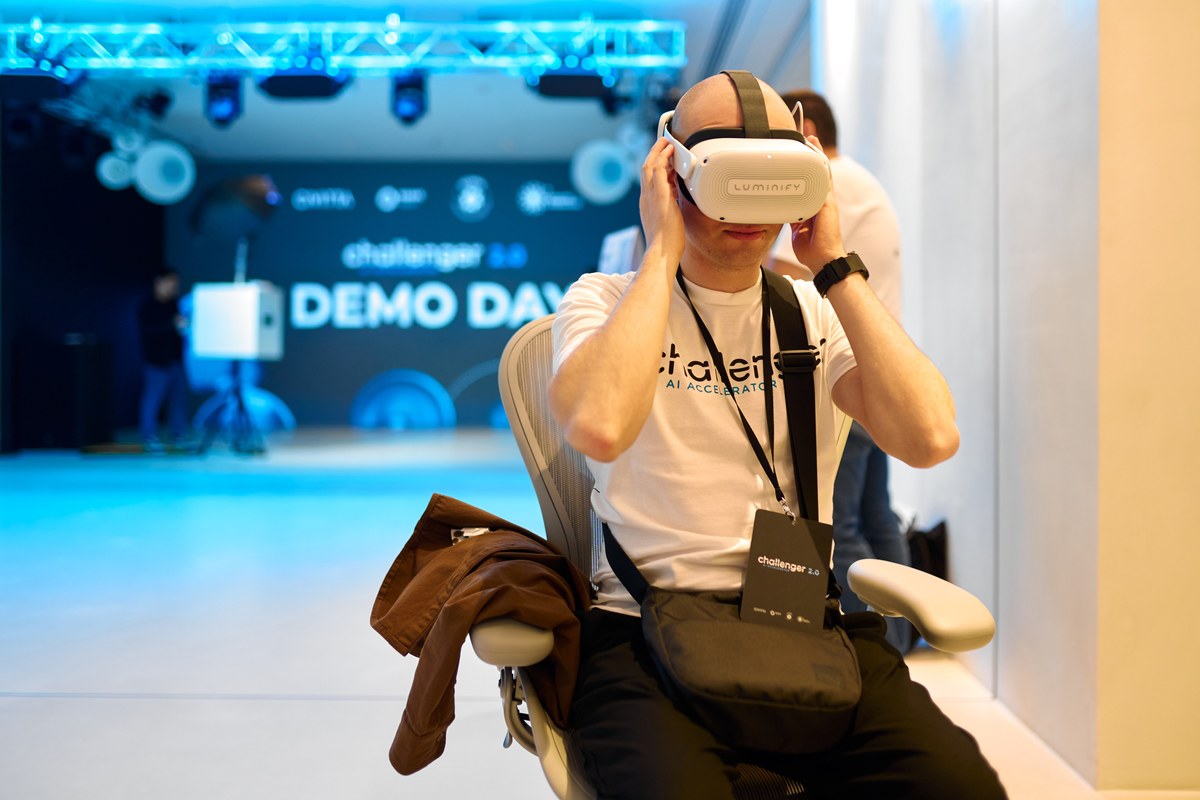
— Since you work with many markets, can you tell us whether Ukrainian startup founders have any particular characteristics or if they differ from their foreign counterparts?
Most of our startups are Ukrainian, but we also have international participants. Our mentors and investors are mostly from abroad, including Lev Dolgachov, Managing Partner at Meemaeger Capital; Erki Molder from Verge HealthTech Fund; Riivo Anton, Founding Partner at Specialist VC; Triin Agan, Co-founder of Soulie; Raul Liive, Head of Product at Verticals, Veriff, and many others.
We aim for the accelerator to help startups reach a whole new level and immerse them in the international startup community.
One noticeable difference between European and Ukrainian founders is that Ukrainian startups don’t always immediately consider joining accelerator programs and don’t always understand their value, unlike their Western counterparts.
In other regions, startups often go through several accelerator programs, trying to expand their network as much as possible, gain mentorship, and actively leverage these programs.
The local Ukrainian startup ecosystem, of course, started developing later — we’re still very young — so the value of such programs isn’t immediately obvious to teams. However, in recent years, this trend is changing: more and more teams are applying to and completing these programs. They understand that accelerators are a great opportunity for improvement and learning, and a chance to connect with mentors, investors, and other startups from different countries.
— Do you have any taboo niches for startups?
We don’t work with gambling and we’re not an accelerator for Web3. Otherwise, Challenger AI is open to all other industries. During selection, we give preference to startups that are already working with AI and have an MVP. At the same time, if a team is planning to integrate artificial intelligence into their solution and has at least a demo product, they still have a chance to join the program. Another requirement is having a team of at least three people.
I should also note that we work less with B2C; our expertise is stronger in B2B, so most of our projects are B2B solutions.
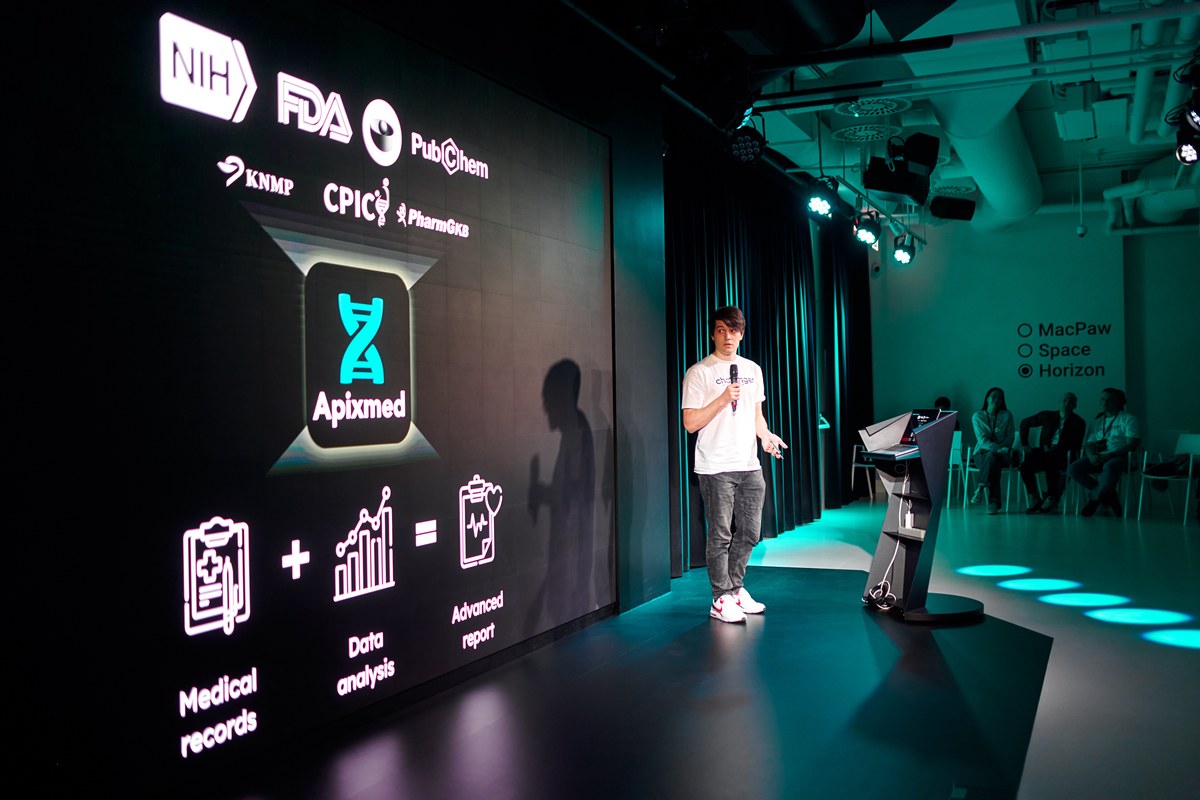
— Do you pay attention to diversity in teams? Could a team be all-male, for example?
Of course, we strongly encourage having more startups with diverse founders, but we won’t discriminate against an all-male team if they have a strong solution and meet all criteria. We always aim to include women founders in our cohorts. In the last cohort, for instance, three out of twelve projects had women founders.
— Is competition among Ukrainian innovators high to get into your accelerator?
The ecosystem is actively developing, though not as fast as it could if it weren’t for the war. From the experience of the first two cohorts, we received around 100 applications in each Challenger AI intake. Out of these, 20 projects were accepted: 8 startups in the first cohort and 12 in the second.
The third cohort is currently open, so we invite startups to apply. Detailed criteria and program information are available on the accelerator’s website.
— What does a startup gain by joining the accelerator?
We place a strong emphasis on mentorship, which is a major part of our program and one of our strengths. Each startup is assigned a lead mentor who works closely with the team from start to finish, guiding them, answering requests, and providing advice.
In addition, we have technical mentors with AI expertise who can consult on product development. We also offer a third type of mentorship: on-demand sessions with subject-matter experts. This is especially useful when a startup needs additional knowledge, for instance, in marketing or legal matters. Requests can be very specific, and we strive to find the right expert in our network to address them.
As part of the program, we also organize startup “roasts”: we invite investors to listen to pitches, ask questions, and provide feedback.
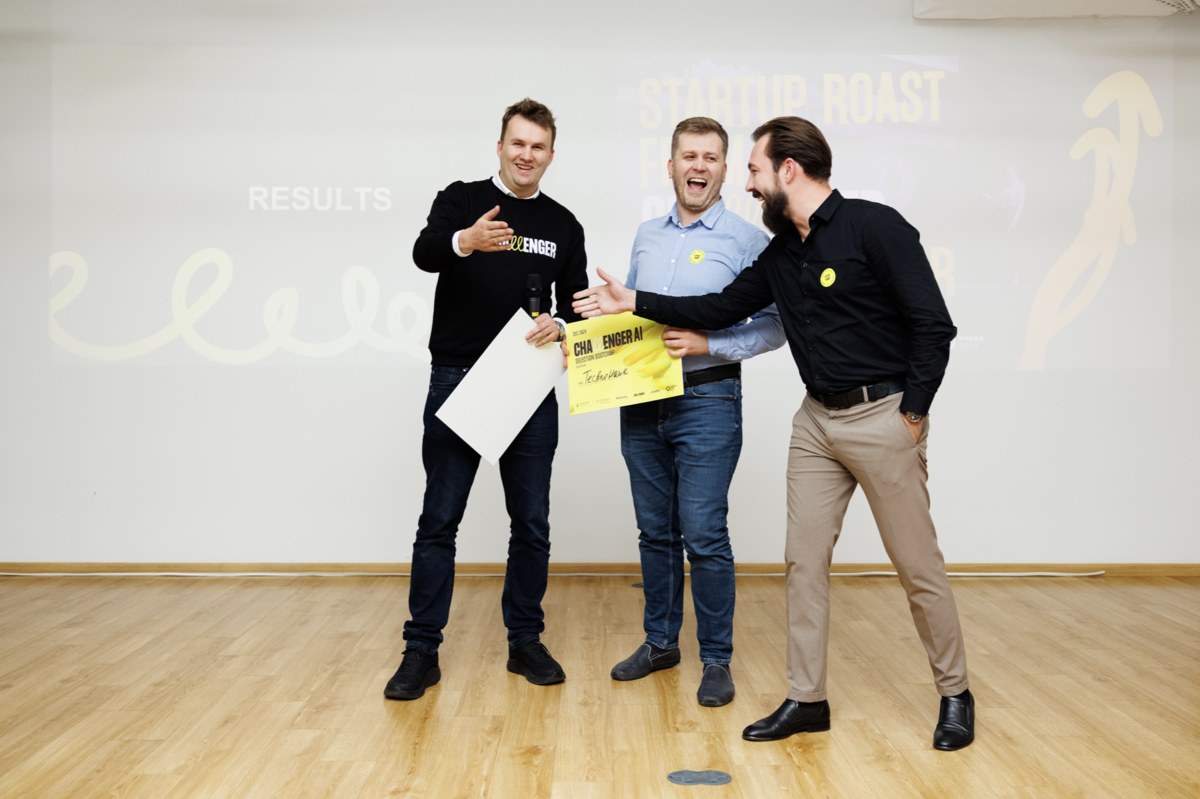
In addition, startups participating in the accelerator receive prizes from program partners. In Challenger AI 3.0, our UMAEF partners provide a $25,000 grant to the best startup team, as determined by the jury during Demo Day. USF (Ukrainian Startup Fund) will distribute $75,000 in AWS credits equally among the top three teams. Other partners offer free subscriptions ranging from 3 to 12 months.
Overall, the acceleration process has four main components:
- Educational program and training: This consists of five modules: creating a business model, product development, company and team management, scaling to new markets, and increasing investment attractiveness.
- Mentorship support: Each startup is paired with mentors — business mentors and technical mentors with relevant expertise and experience. In Challenger AI 3.0, startups can also receive on-demand mentorship from session speakers, as mentioned earlier.
- Investor exposure: Startups participate in Startup Roasts and pitch their solutions to both international and Ukrainian investors to improve their pitches.
- Meetings with successful founders: The accelerator team invites accomplished Ukrainian and international founders. Participants learn relevant insights from those who have already navigated market expansion or raised investment rounds.
Arguably, the greatest value of any accelerator program is the networking and contacts startups gain throughout the program. Each new cohort’s program is customized to fit the needs of its startups.
Here’s a detailed overview of the five modules in the Challenger AI Accelerator program:
Module 1: Business Model and Product-Market Fit
Startups learn to define their business model and identify the uniqueness of their product. Early-stage founders gain an understanding of the mechanisms that will help develop and scale their startup in the future.
Module 2: Product Development
Participants explore how AI technologies can enhance their product and provide a competitive edge in the market. Significant attention is paid to scalability, leveraging AI expertise to make products more robust and market-ready.
Module 3: Company and Team Management
This module focuses on financial and legal management. Founders learn how to manage project budgets, maintain P&L reports, prepare a working financial model, and generate the necessary financial documents, forecasts, and key metrics to attract investment.
Module 4: Scaling to New Markets
Startups work on marketing strategies, sales, and product expansion into new markets. Mentors help teams assess their needs and discuss potential strategies for growth and market entry.
Module 5: Increasing Investment Attractiveness and Fundraising
The final module focuses on securing external financing. Civitta’s team provides in-house expertise on funding, guiding startups through investor relations and fundraising strategies.
After selecting participants for a new Challenger AI cohort, the program is customized based on each startup’s specific needs and requests, allowing for a flexible and tailored learning experience.
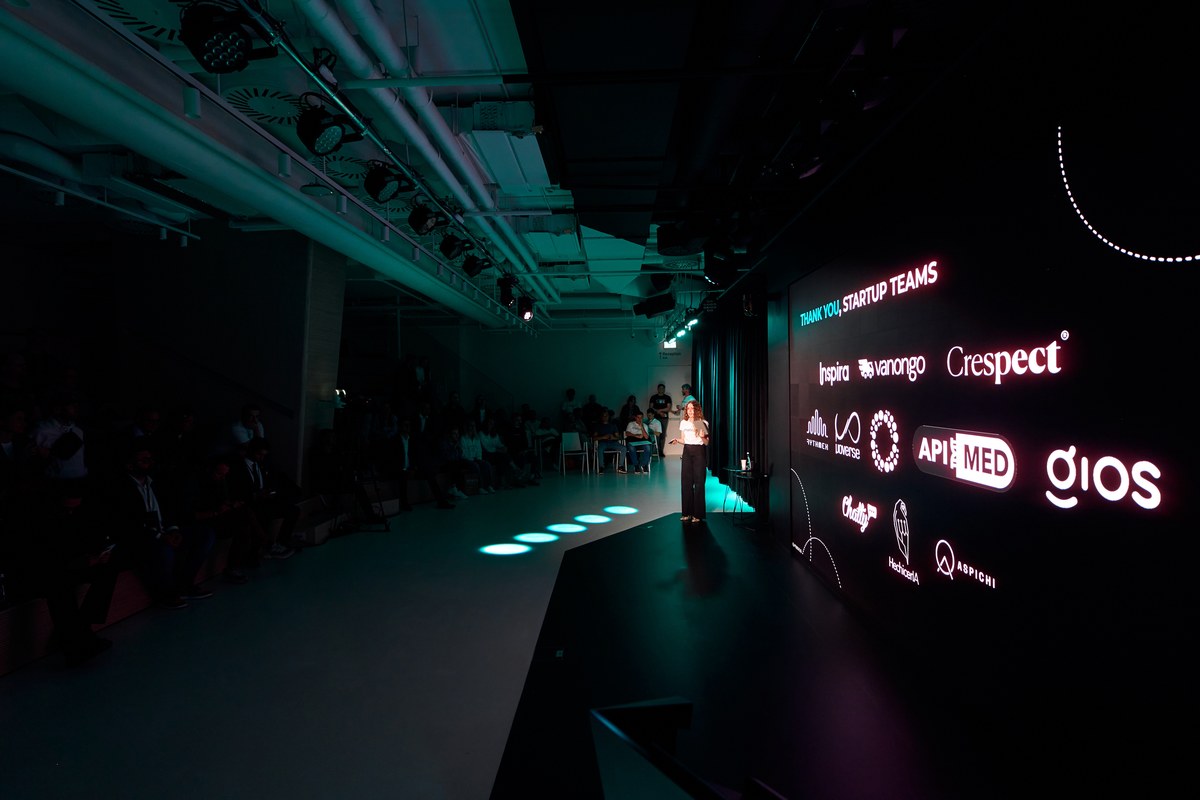
— How does Challenger AI differ from other acceleration programs available to Ukrainian startups? What is your advantage?
Compared to other accelerators, first of all, we are the first specialized accelerator. We build our program around AI so that startups receive concentrated knowledge that they can directly apply to developing their product. Secondly, we are equity-free. Thirdly, we are an international accelerator, which is also important. In Ukrainian programs, mentors and experts are mostly Ukrainian. That’s not bad—it’s very useful for early-stage startups—but no one else in the Ukrainian market offers the same international network that we provide.
— What proportion of Ukrainian projects typically participate in the program?
About two-thirds. In the last cohort, 8 out of 12 teams were Ukrainian. This year, our plan is to have at least the same number of Ukrainian teams.
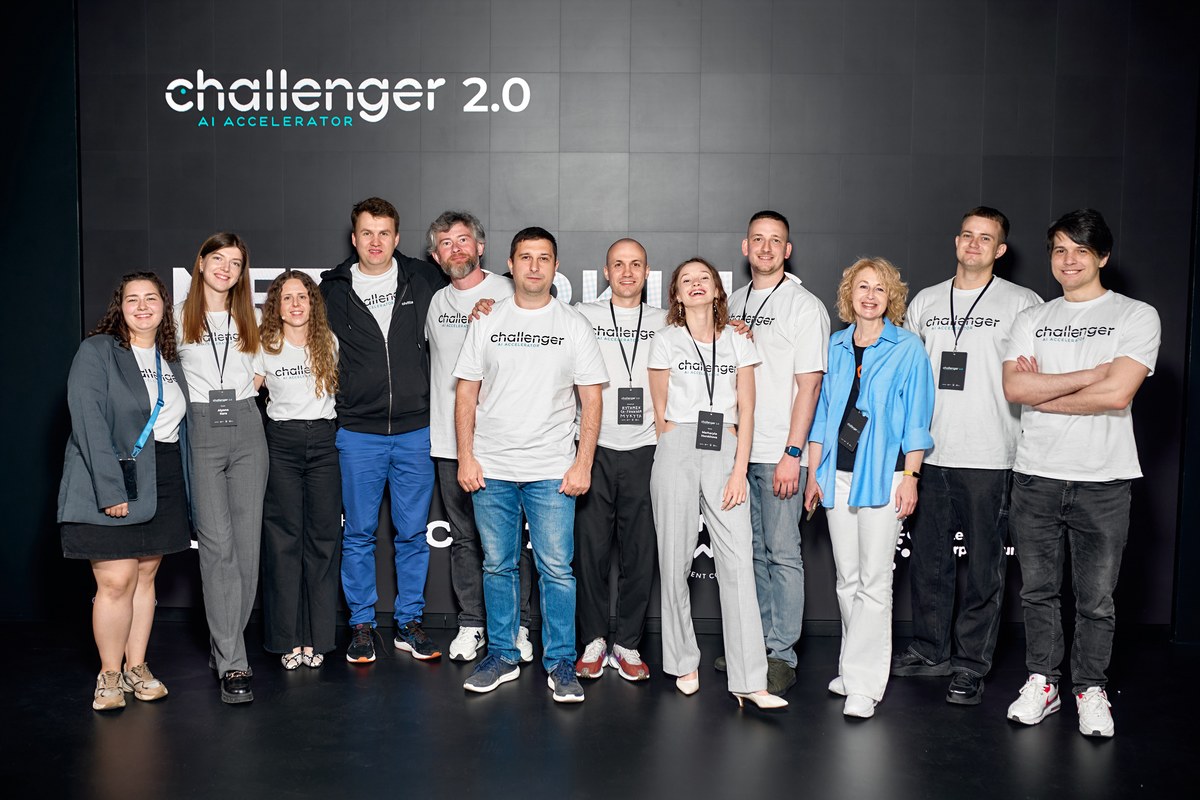
— In what format do the meetings within the program take place?
Overall, the program is conducted online with hybrid elements, since most of the speakers are international. This means all training sessions are held online. The Demo Day is offline, with the option to participate remotely if a team cannot travel to Ukraine. However, this year we are considering organizing more in-person activities in Ukraine for Ukrainian founders.

